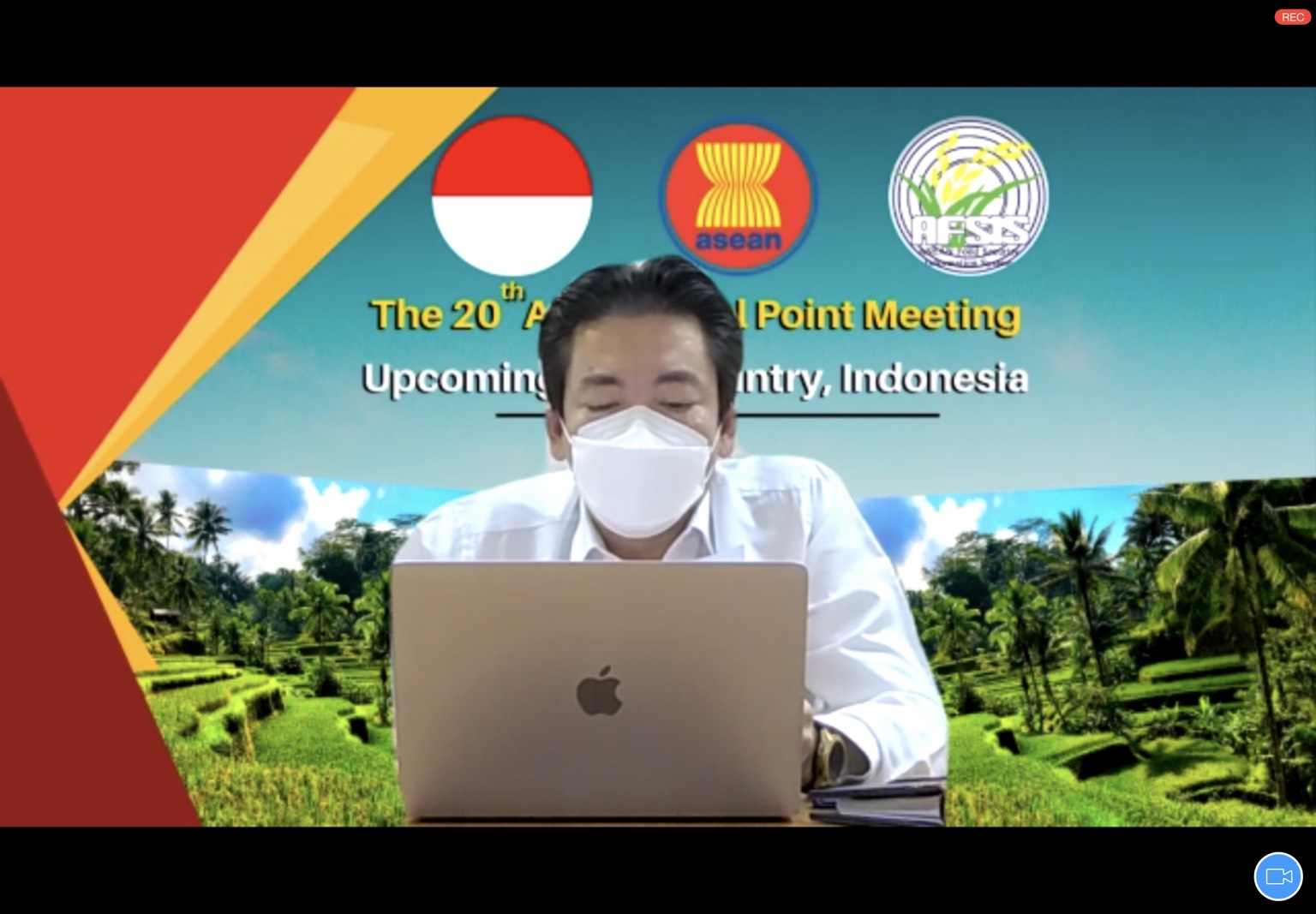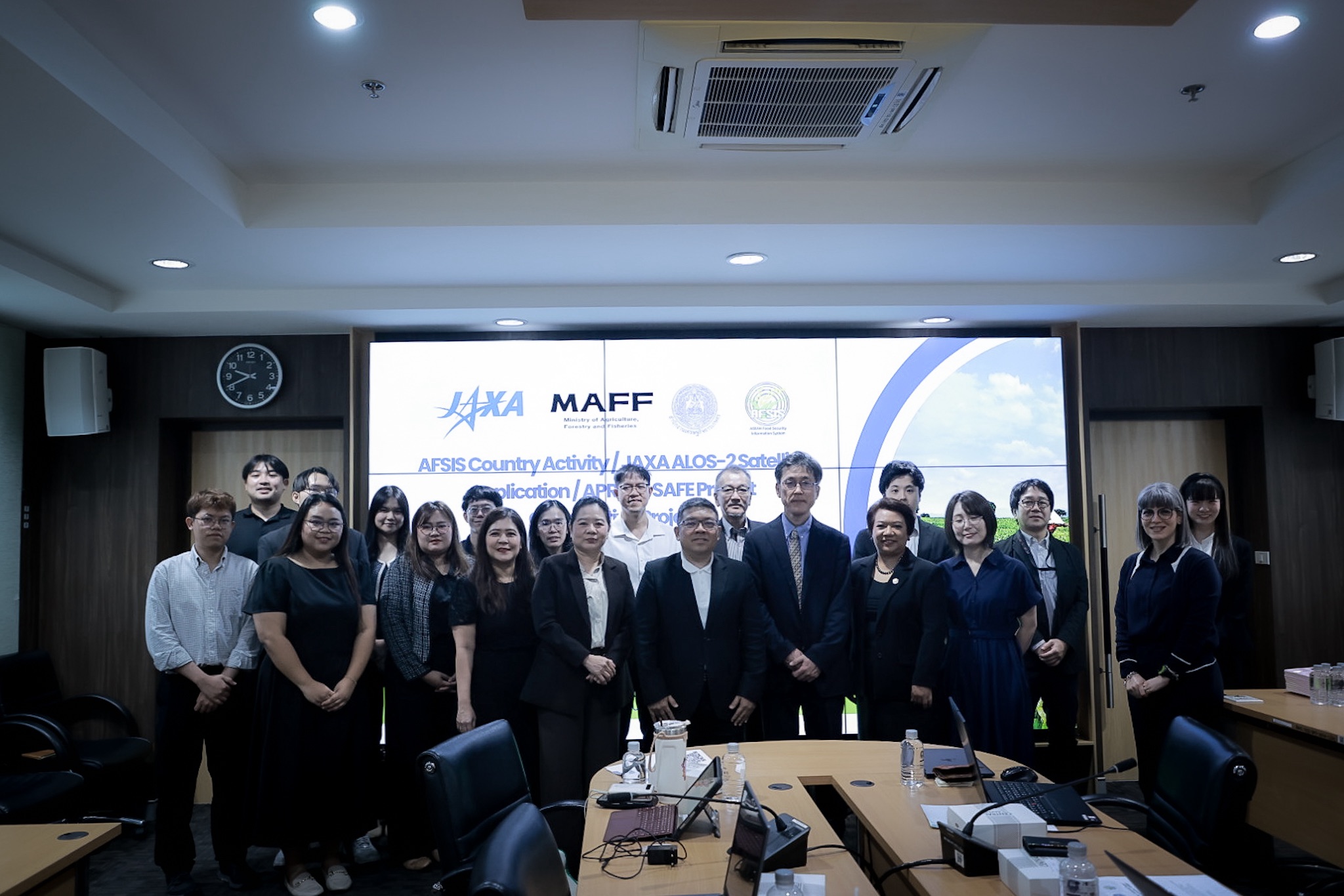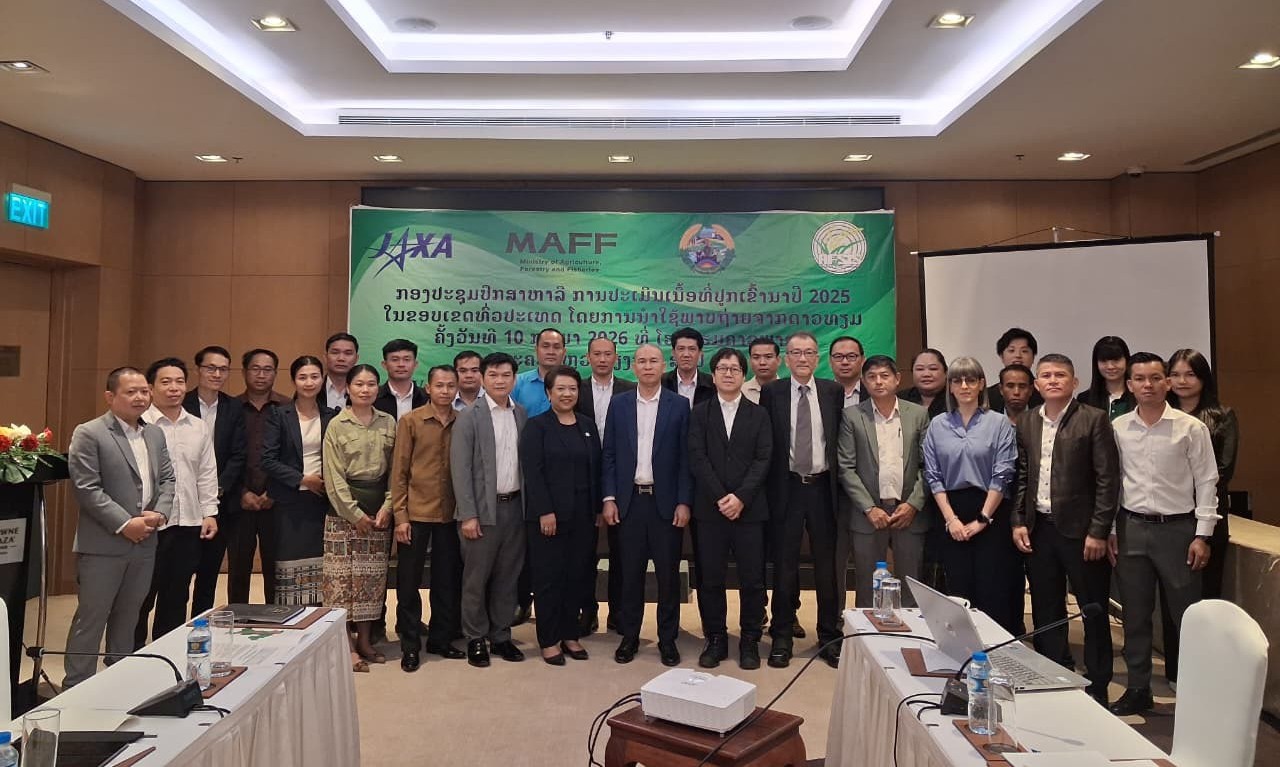.png)
The 19th Focal Point Meeting of ASEAN Food Security Information System (AFSIS) was virtually held on 22-23 June 2021 via Zoom platform due to the situation of COVID-19. It was organized by the AFSIS Secretariat and hosted by Department of International Cooperation and department of Planning and Statistics, Cambodia.
The number of distinguished representatives from the relevant agencies including ASEAN Plus Three members, Remote Sensing Technology Center of Japan (RESTEC), and ASEAN Plus Three Emergency Rice Reserve (APTERR)Secretariat had attended the meeting.
This momentous of the 19th AFSIS Focal Point Meeting is a great chance to share, discuss, and extend the knowledge and innovation on agricultural statistics, challenges of food security in the region, and sustainable development goals. The main objectives of this certain meeting are to inform the ASEAN Plus Three Countries about the outcomes and achievements of AFSIS in 2020, to consider 2021 work plan, and related issues.
The Meeting was presented with the update on AFSIS implementation in 2020, the update of projects under the relevant organizations which collaborate with AFSIS, as well as the future work plan in 2021 for AFSIS Project. Also, the highlight of the meeting was the introduction to the new Japan funded AFSIS project for 2022-2024 namely “Strengthening AFSIS Function for Emergency (SAFE) Project”.
Furthermore, there was also an open session for the ASEAN Plus Three member to discuss and share their opinions regarding of the Future of AFSIS project after 2024.
Before the conference was successfully ended, the Meeting expressed the appreciation toward the roles of the AFSIS Secretariat in strengthening food security and vowed to continually cooperate and support the projects under AFSIS implementation.
For the next meeting, the 20th Focal Point Meeting of AFSIS, it will be hosted by Indonesia on 29-30 March 2022 in Jakarta.

.png)
.png)






On 12-13 February 2026, the AFSIS Secretariat, in collaboration with the Japan Aerospace Exploration Agency (JAXA), the Remote Sensing Technology Center of Japan (RESTEC), Ministry of Agriculture, Forestry and Fisheries (MAFF) Japan and the Office of Agricultural Economics (OAE), Ministry of Agriculture Cooperatives (MOAC), conducted a workshop conducted a workshop The Promoting Rice Planted Area and Production Estimation Using INAHOR and Space-based Technologies in Thailand at the Meeting Room 2, Innovation Building, 3rd FL, Office of Agricultural Economics (OAE)

The In-Country Workshop on Promoting Rice Planted Area and Production Estimation Using Space-based Technologies in Lao PDR was jointly organized by AFSIS Secretariat, JAXA, MAFF Japan, and MAE Lao PDR under the AFSIS-GIS and SAFE projects. The event was held in Vientiane with hands-on training on 9 February 2026 and a workshop on 10 February 2026.
.jpg)
On 13–15 January 2026, the Office of Agricultural Economics (OAE), Thailand, in collaboration with the Ministry of Agriculture, Forestry and Fisheries (MAFF), Japan, and the AFSIS Secretariat, conducted the 1st Meeting of Japan–Thailand Expert Dialogue on Agricultural Statistics. The meeting was held at the Office of Agricultural Economics and field survey activities in Chonburi Province.

On 3–4 December 2025, the ASEAN Food Security Information System (AFSIS) Secretariat participated in the ASEAN Plus Three Emergency Rice Reserve (APTERR) Table Top Exercise (TTX) held in Bandar Seri Begawan, Brunei Darussalam.